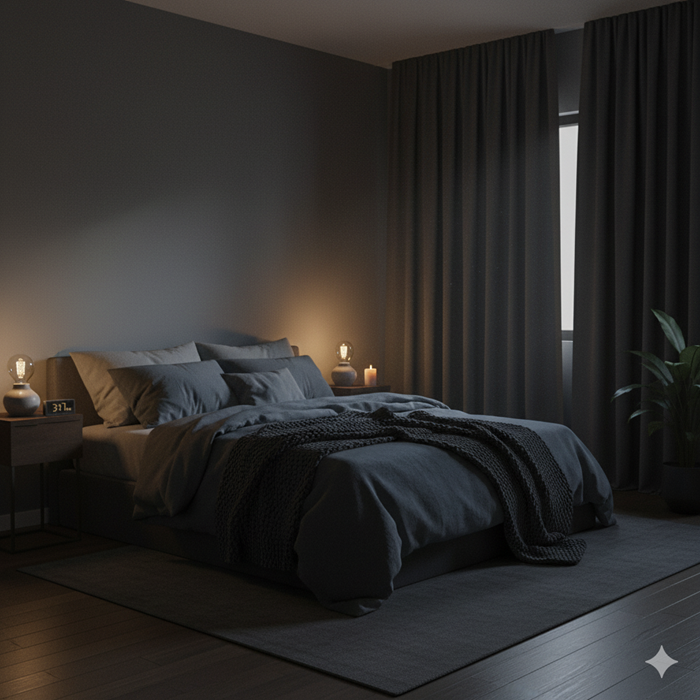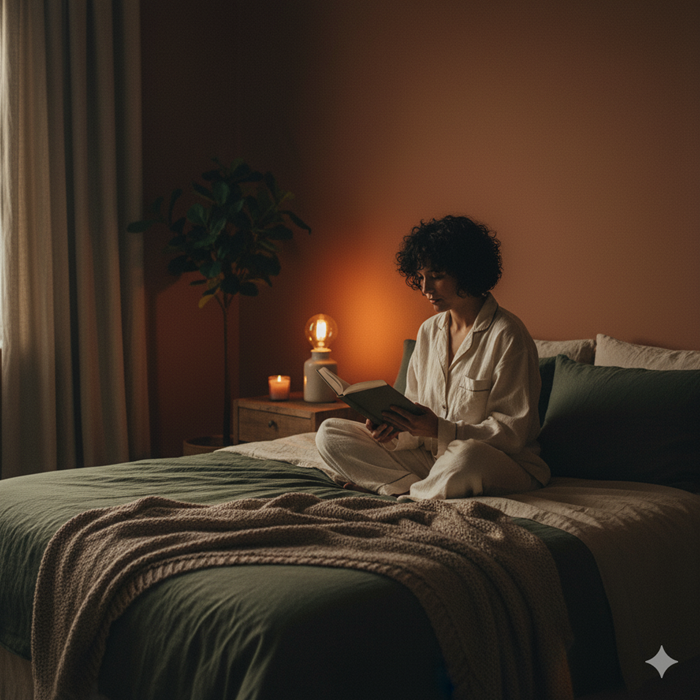How to Sleep Better Naturally
Simple lifestyle habits and science-backed tips to improve sleep without pills.
Why sleep matters
- Brain health: Sleep clears toxins and sharpens memory.
- Hormone balance: Rest supports metabolism and stress control.
- Immune defense: Quality sleep strengthens natural immunity.
- Mood stability: Poor sleep fuels anxiety and irritability.
Natural ways to sleep better
- Stick to a schedule: Sleep and wake at the same time daily.
- Limit screens: Turn off devices at least 1 hour before bed.
- Optimize bedroom: Cool (18–22°C), dark, and quiet environment.
- Wind-down ritual: Read, stretch, or journal 20 minutes before sleep.
- Avoid late caffeine: Stop coffee/tea at least 6 hours before bed.
- Gentle movement: Yoga, light walking, or stretching in the evening.
- Mindful breathing: Try 4-7-8 breathing (inhale 4, hold 7, exhale 8).
Evening relaxation exercises
- Progressive muscle relaxation: Tense and release each muscle group.
- Gratitude journaling: Write 3 things you’re thankful for before bed.
- Guided meditation: Use a sleep story or calm music app.
- Warm shower or bath: Drop in body temperature triggers sleepiness.
One-week natural sleep reset
- Day 1: Set fixed bedtime + wake-up time.
- Day 2: Reduce screen time 1 hr before bed.
- Day 3: Try gratitude journaling at night.
- Day 4: Add light stretching or yoga.
- Day 5: Experiment with herbal tea (chamomile, lavender).
- Day 6: Do progressive relaxation before sleep.
- Day 7: Review: track energy & mood improvement.
FAQs
How many hours of sleep do adults really need?
Most adults need 7–9 hours. Focus on quality and consistency, not just hours in bed.
Can I catch up on sleep during weekends?
Weekend “catch-up” sleep helps temporarily but disrupts your natural rhythm. A consistent bedtime is better for long-term health.
What natural remedies help with sleep?
Chamomile tea, lavender aroma, magnesium-rich foods, and mindful breathing can support relaxation without side effects.




